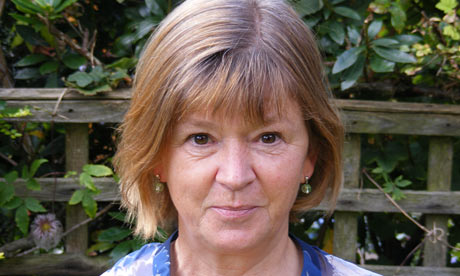A novelist without a publisher is like a singer without a microphone – mouth going, arms waving, nothing coming out – frankly, an embarrassment
Jane Rogers, guardian.co.uk,
It's quite easy for a mainstream novelist to vanish. Poor sales for one novel are enough to make bookshops reluctant to stock the next: low sales figures combined with the writer ungraciously insisting on writing the book she wants to write rather than the book an editor wishes she would write, are enough to alienate publishers. This was more or less the position I found myself in three years ago, when my novel The Testament of Jessie Lamb was having difficulty finding a home. I was writing a book set in the near future, after an act of biological terrorism, and I was electing to write in the voice of a naive and idealistic 16-year-old. It was very different from my previous work. I had written seven novels including Mr Wroe's Virgins and Island, and had won prizes ranging from the Somerset Maugham award to the Writers Guild best fiction book, but that was no help now. A novelist without a publisher is like a singer without a microphone – mouth going, arms waving, nothing coming out – frankly, an embarrassment to herself and everyone else. I was embarrassed.
But what I've learned over the past few years is that writing is like a leak – it will out. If you block its way it finds another channel.
I'd been writi ng for radio for a long time, mainly adaptations, enjoying it for the escape from self that immersion in someone else's work gives you, increasing my respect for the dramatic genius of Edith Wharton's dialogue along the way. And of course, I did it for the pay, which, if you work quickly, is good. But as it dawned on me that I was probably not going to be able to publish my latest novel – nor indeed any other novel in the future – radio began to interest me more. I began to think about the first-person voice on radio, how it draws you right into the character's intimate thoughts; how there can be more than one voice, there can be arguments, all inside one head; how engaging and dramatic that is; and how many people listen to Radio 4. Afternoon plays get two million plus listeners, while most literary novels sell, what, 10,000 copies? If you're lucky. Snobbishly, I'd been valuing radio in the way newspapers do – second-class medium, one measly review a week – instead of acknowledging its power and potential.
Full story at The Guardian.
But what I've learned over the past few years is that writing is like a leak – it will out. If you block its way it finds another channel.
I'd been writi ng for radio for a long time, mainly adaptations, enjoying it for the escape from self that immersion in someone else's work gives you, increasing my respect for the dramatic genius of Edith Wharton's dialogue along the way. And of course, I did it for the pay, which, if you work quickly, is good. But as it dawned on me that I was probably not going to be able to publish my latest novel – nor indeed any other novel in the future – radio began to interest me more. I began to think about the first-person voice on radio, how it draws you right into the character's intimate thoughts; how there can be more than one voice, there can be arguments, all inside one head; how engaging and dramatic that is; and how many people listen to Radio 4. Afternoon plays get two million plus listeners, while most literary novels sell, what, 10,000 copies? If you're lucky. Snobbishly, I'd been valuing radio in the way newspapers do – second-class medium, one measly review a week – instead of acknowledging its power and potential.
Full story at The Guardian.

No comments:
Post a Comment